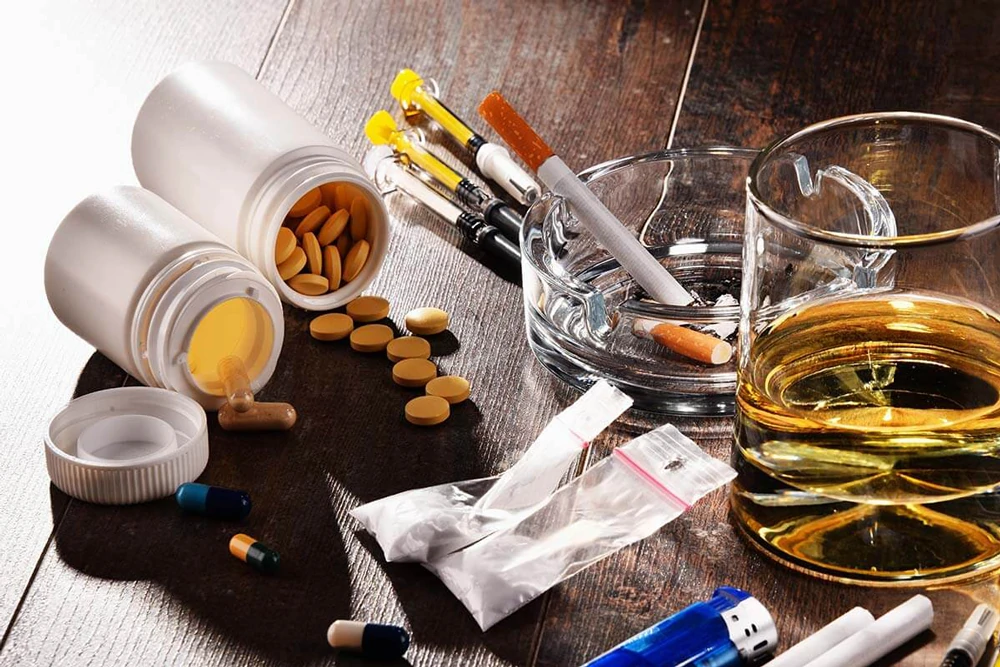Who Does Drug Addiction and Alcoholism Affect?
Alcoholism and drug addiction are quite common in today’s society. Some estimates have shown that over twenty percent of the United States population battles with some form of drug addiction, alcohol ism or substance abuse problem
Drug addiction and alcoholism bring only destruction, sorrow, and pain, it affects not only the addict, but also the people in his/her life. Hurting friends and family, drug addiction also permeates professional settings. Employees with drug addiction or alcohol dependency problems hurt businesses and create aggravating and possibly unsafe work environments.
Many untrue myths on the origins of drug addiction and alcoholism continue to circulate. Some attempt to pinpoint the social groups most affected. Others attempt to recognize drug addiction and alcoholism as an illness or a moral defect. These falsehoods perpetuate unnecessary confusion, fear, and shame. Drug addiction or alcoholism does not appear in any particular component of society. It affects every socio-economic class, ethnicity, and gender. There is no reason to label drug addicts with untrue stereotypes, and there is no need to fear them. At some point everyone struggles with life’s hurdles and needs help from others. Drug addicts and alcoholics are no different from anyone else. No one chooses drug addiction or alcoholism; rather, drug addiction and alcoholism steals from him/her.
How Can Drug Addiction and Alcohol Addiction Be Identified?
Drug addiction and alcohol addiction carry warning signs with them. Some of these are listed below:
* Red or dilated eyes
* Slurred speech
* Cold or sweaty hands
* Difficulties concentrating
* Moody, impatient, dangerous, and/or violent behavior
* Extreme periods of energy (e.g., constant talking) and/or fatigue
* Paranoia
* Sudden or decreasing disregard in personal appearance or hygiene
* Sudden change in friends
* Dishonesty
* Depression
Well over half of drug users work, and two out of five have taken an illicit drug at their work site. Unsurprisingly, almost half of work related accidents involve drug addiction or alcoholism. Substance abuse, drug addiction and alcoholism on the job manifests in many ways:
* Decreases the quality and/or speed of work.
* Constant absences and/or tardiness (especially right before a weekend or holiday break and right after payday): Researchers find that drugs cause over sixty percent of work absences.
* Often leaving work early
* Lengthening breaks
* Talking more on the phone
* Stealing company supplies and/or profits
How to Help a Drug Addict or Alcoholic?
Drug addiction and alcohol addiction are treatable. The question is ,why do so many recovering addicts return to the same behaviors? Posing a severe problem in and of itself, addiction rarely develops on its own. Drug addiction and substance abuse most often result from inadequate coping of conscious and unconscious issues. Problems stem from unresolved childhood traumas and personal issues. Dependency, denial merely enlarges the initial denial. Substance abusers require extensive patience, compassion, and sensitivity to treat and to heal. For this reason, addicts may need constant encouragement to pursue addiction treatment options and drug rehab.
Know the Signs of Drug Addiction and Alcohol Addiction
Know how to recognize drug addiction and alcohol addiction Identify warning signs. Become familiar with strategies for handling someone with a possible drug addition or alcohol addiction.
Speak with the Individual
This can be difficult. Fears of being wrong often deter people from approaching a possible addict. However, it is better to talk to a person and be wrong then to say nothing and allow a drug addiction or alcohol addiction to continue. Always broach the topic in an unthreatening manner.
Offer Guidance and Suggestions
While demonstrating concern is essential, it is important not to come on too strong. A substance-abuse situation is a delicate matter. While drug addiction may be apparent, all other issues, which contributed to the present condition, are not. Sobriety can never be achieved unless an addict takes charge of his/her own situation and decides to change his/her lifestyle.
Support and Compassion
Even if professionals delicately ask about a possible drug addiction, the addict may still refuse help. Substance abuse and its initial/current life problems create massive feelings of helplessness. They may not feel capable of stopping their drug addiction or alcohol addiction, and they might not trust others, even those that want to help. Nonetheless, with persistent patience and compassion, a professional can communicate his/her sincerity; and eventually, the addict may gain the necessary trust and courage for drug rehab or alcohol rehab.
Addiction Recovery in Alcohol Rehab and Drug Rehab
People suffering from drug addiction and alcohol addiction need both benefits of individualized care and drug rehab and alcohol rehab. Individualized addiction treatment is essential for enduring sobriety. While symptoms may be common, causes are never completely shared. Being an individual automatically implies that life is experienced uniquely. People require different addiction treatment therapies and time in a drug rehab or alcohol rehab to stabilize. Drug addiction and alcohol addiction attacks from all angles and progressively weakens a person into sequestered parts. Addiction treatment programs, drug rehab and alcohol rehab naturally reunites body, mind, and spirit into an enduring whole person again.



